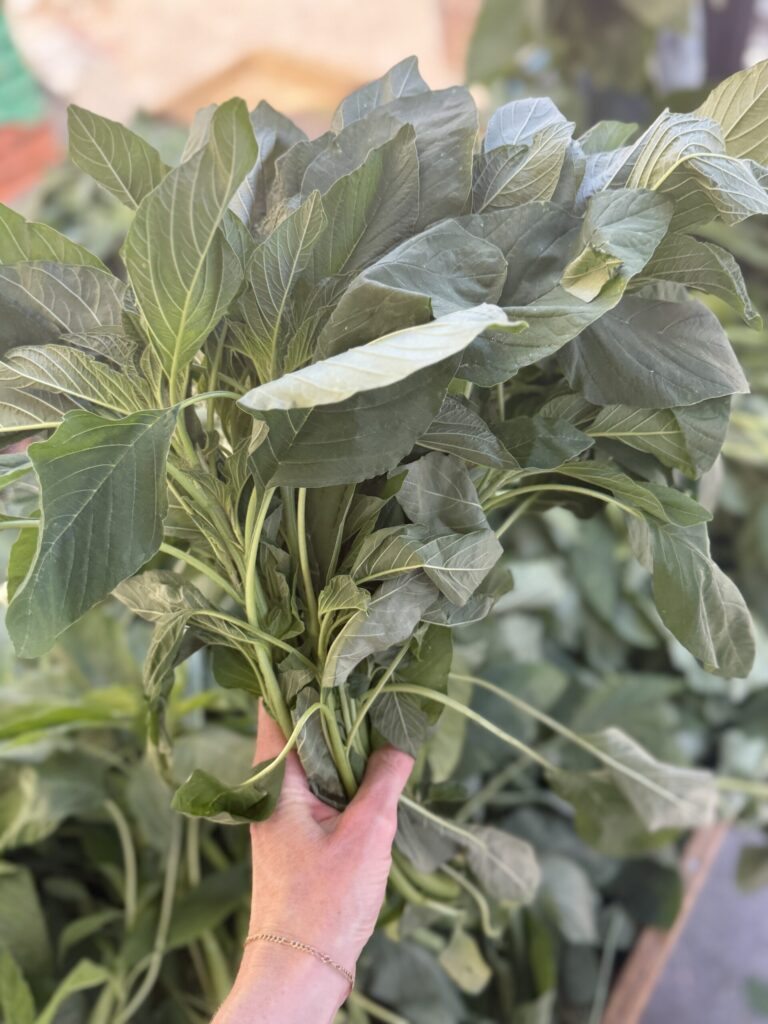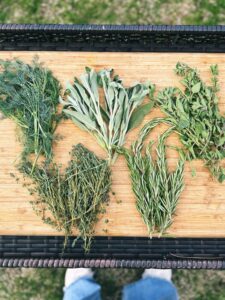3 Foods Greek Centenarians Eat Everyday
Post date: August 18, 2025
Author: Sarah Axtell, ND

I couldn’t help but notice a common thread that wove its way through the local Greek cuisine. Time and time again, I saw three foods emerge as staples in the Ikarian diet: fresh herbs, wild greens, and olive oil. Whether I was sitting down to a meal with a local family, visiting a bustling market, eating at a local taverna, or cooking alongside a seasoned yiayia (grandma), these three ingredients kept appearing. No wonder Greeks are among the longest-lived people in the world. These three foods are nutritional powerhouses.
1.Fresh Herbs: Antioxidant Powerhouses. In both of my cooking classes, I received the same sage advice: “Don’t skimp on the herbs.” Our instructors emphasized that herbs are not just a garnish, but a fundamental component of Greek cuisine. And the best part? You don’t need to be fussy with the type – add any herb to any dish. Whether it’s rosemary, thyme, oregano, parsley, or sage, the possibilities are endless. These herbs are rich in antioxidants and polyphenols, which can help protect against cell damage, inflammation, and even neurodegenerative diseases like Alzheimer’s.
2.Wild Greens: Bitter is Better. I remember my tour of Yannis’s village and family farm, where he introduced us to the local wild greens, known as horta. As we walked through the lush fields, he mentioned, “Americans don’t like bitter. They want everything to be sweet.” This wasn’t necessarily a new observation for me, but it reinforced my understanding of the importance of bitter foods. Many phytonutrients and minerals, like calcium, have a bitter taste, which is why mineral-rich greens like arugula, kale, chard, and dandelion greens are particularly potent. They’re packed with minerals, and bitter foods can stimulate digestion and detoxification.
But what if you’re not a fan of bitter tastes? The good news is that you can neutralize the bitterness with a couple of simple tricks. Adding healthy fats like avocado to your salad can help balance out the bitter flavor. Alternatively, a touch of sweetness, like a drizzle of maple syrup in your salad dressing, can also do the trick.
3.Olive Oil: Liquid Gold Olive oil is the foundation of the Mediterranean diet, and in Greece, it’s referred to as “liquid gold.” One thing that struck me about the Greeks’ approach to olive oil was their lack of concern with counting calories. They use olive oil liberally, not just as a cooking oil, but as a finishing touch to bring out the flavors of their dishes. Yes, olive oil is calorie-dense, but it’s also rich in polyphenols that have been shown to reduce inflammation. In fact, extra-virgin olive oil has similar anti-inflammatory activity to ibuprofen (without the harsh effects on your stomach).
The Greeks’ approach is to focus on the quality of their food, rather than the quantity. They’re not counting calories or macros. They’re filling their plate with a lot of vegetables, a lot of olive oil, and a whole lot of love.
The magic of vegetables come alive with olive oil- enhancing absorption of vitamins and minerals, fighting inflammation, and supporting heart health, all while delivering incredible flavor.
Ready to bring the Mediterranean lifestyle home? Join my Mediterranean Masterclass for delicious recipes and expert tips on incorporating these powerhouse foods into your daily routine. Plus, learn how to choose a quality olive oil at Aldi, Trader Joe’s, Whole Foods, and Costco- a crucial skill, given that up to 80% of olive oils are mixed with cheaper seed oils.
Explore Related Posts:




